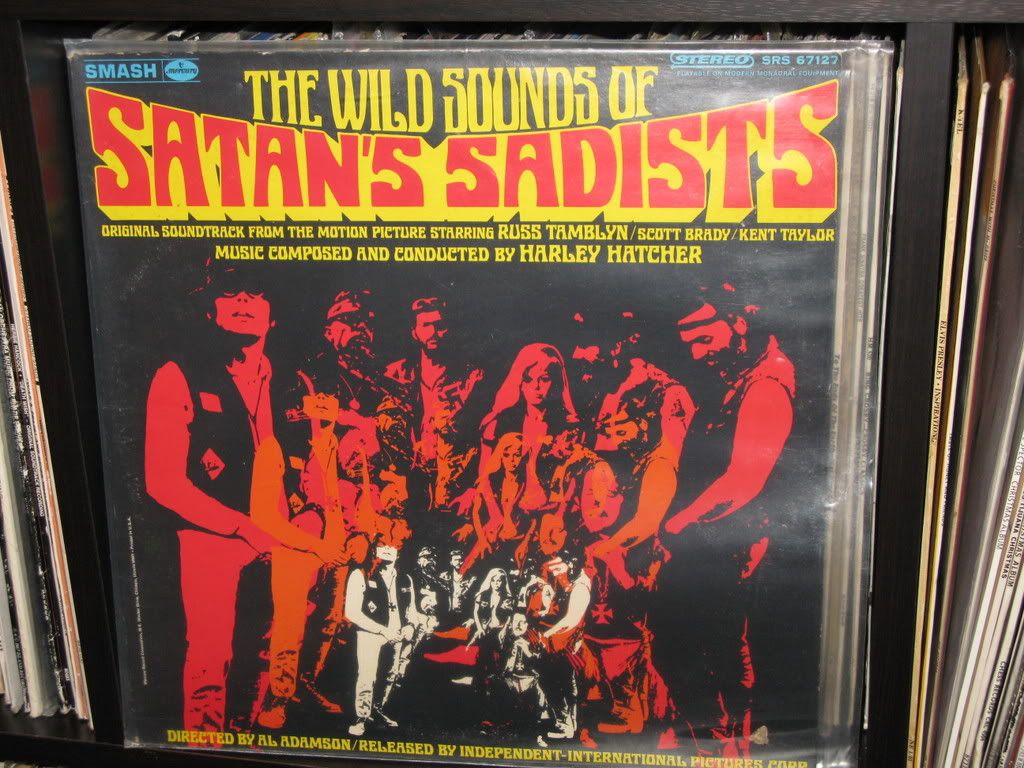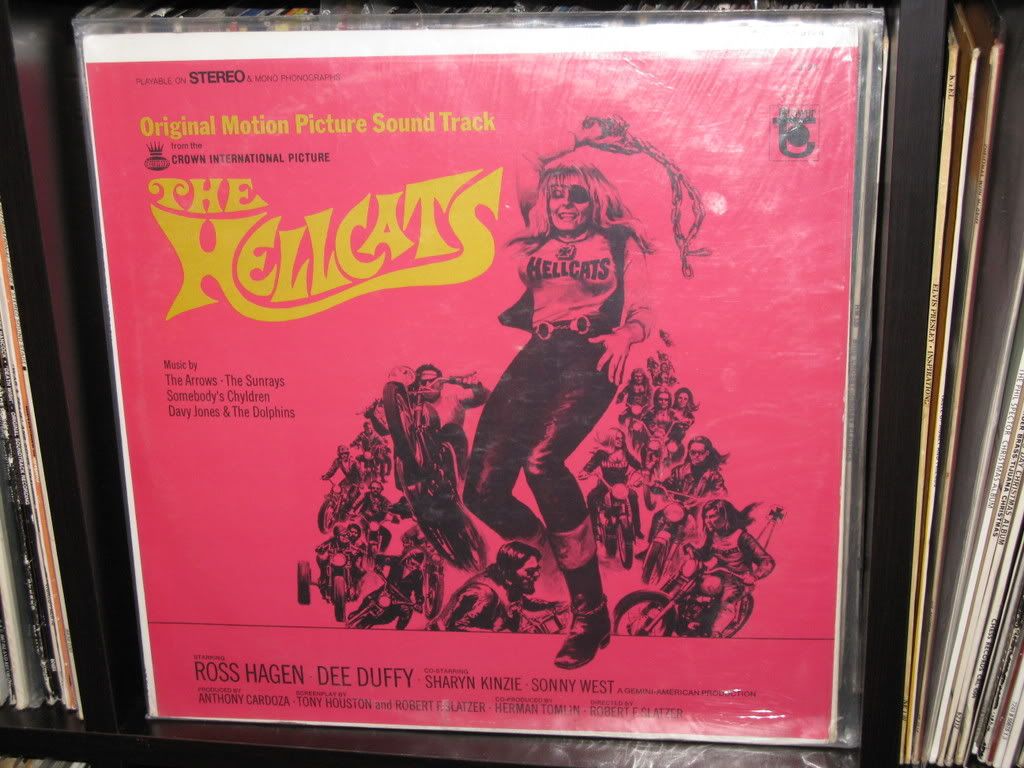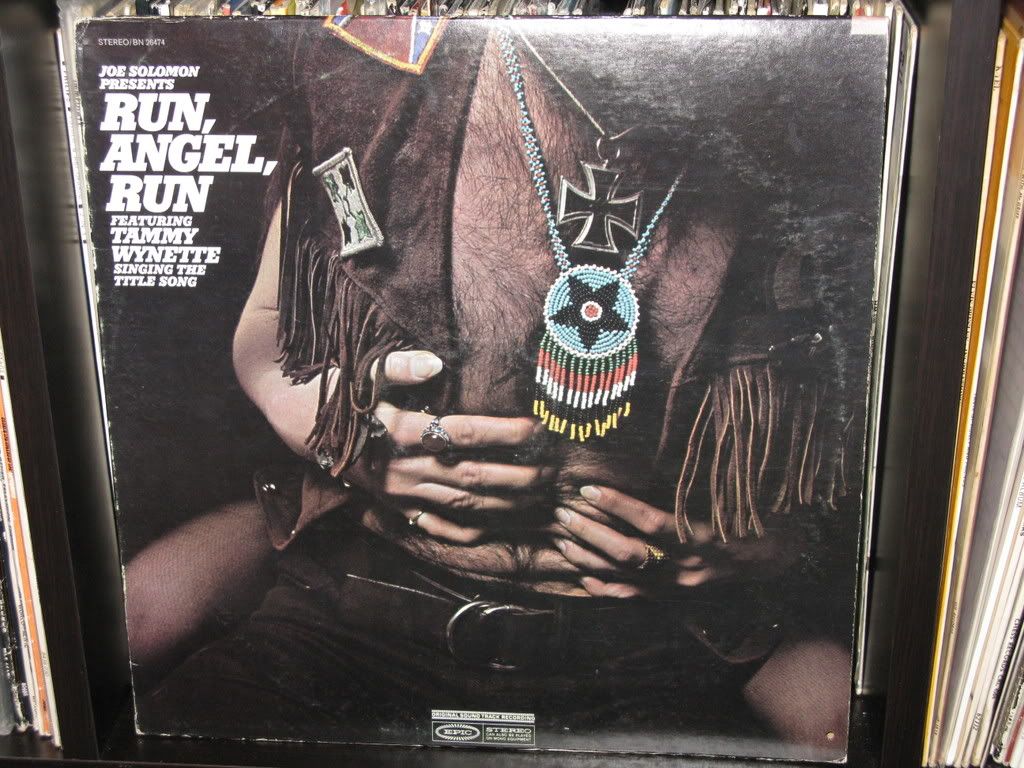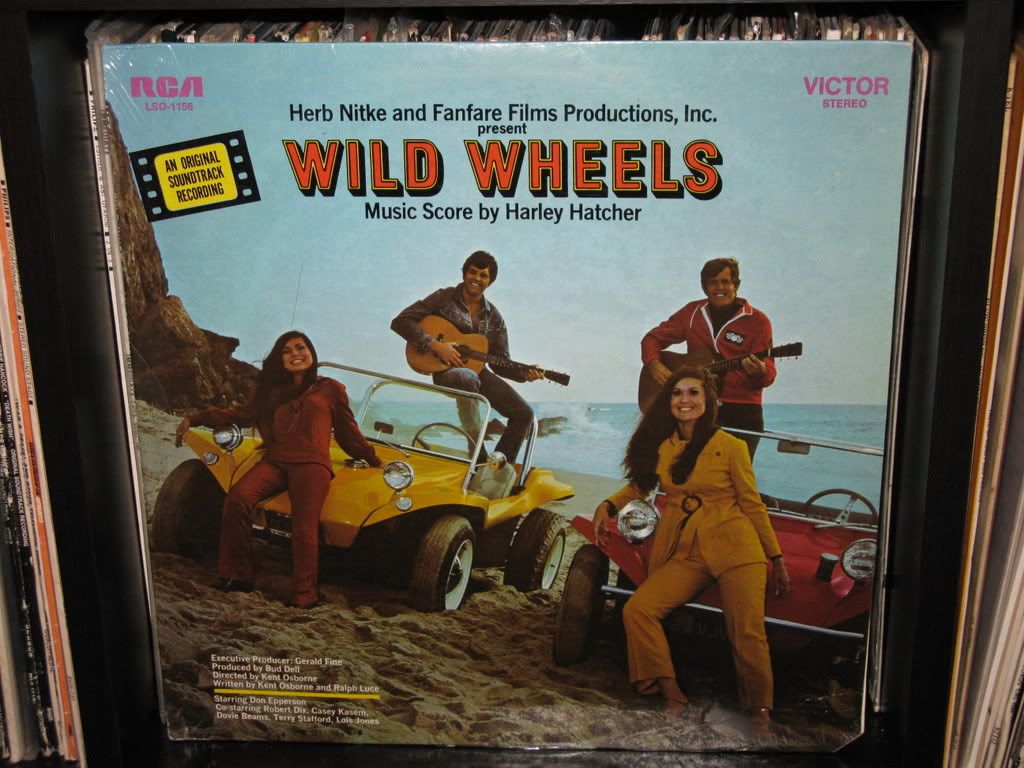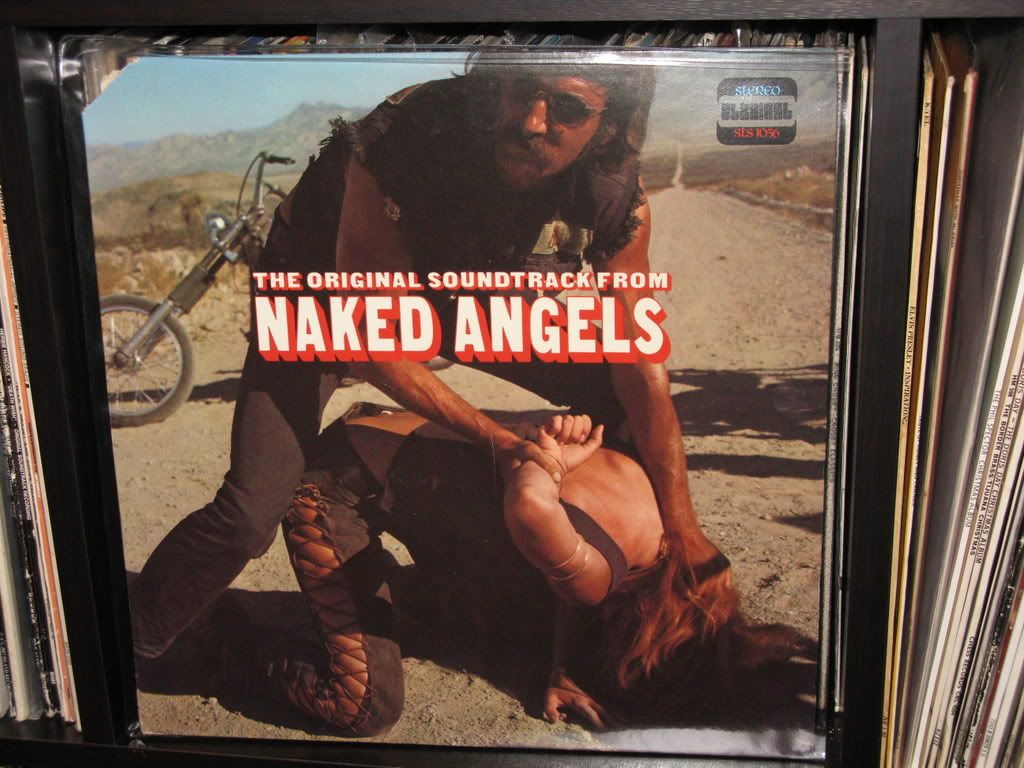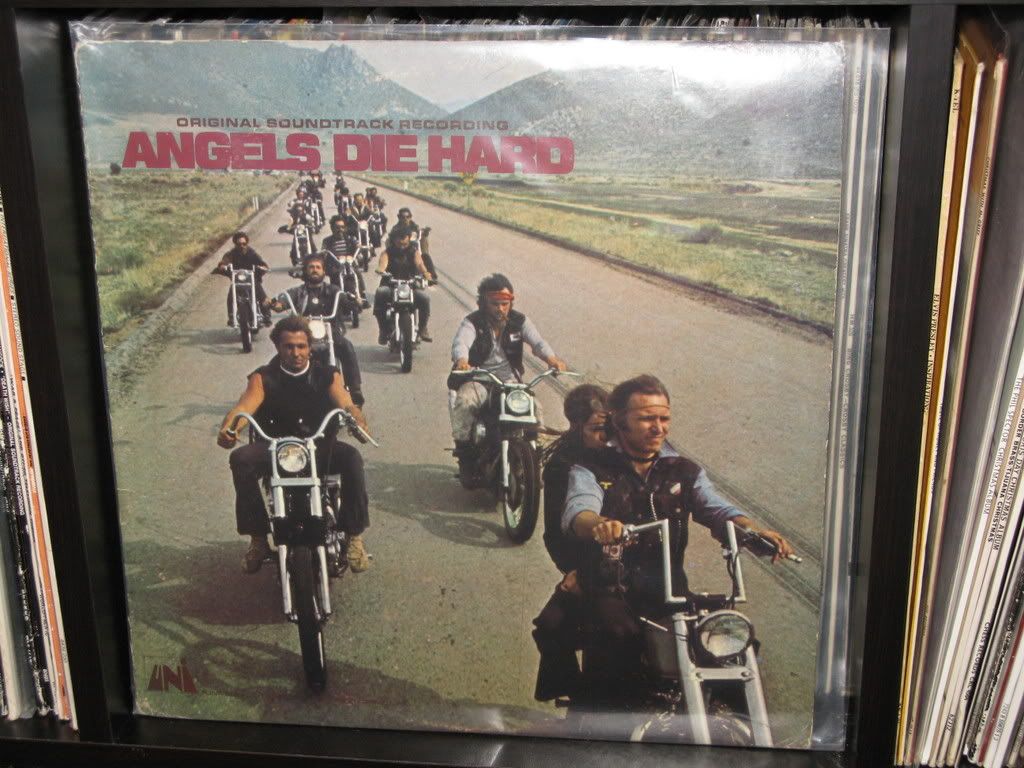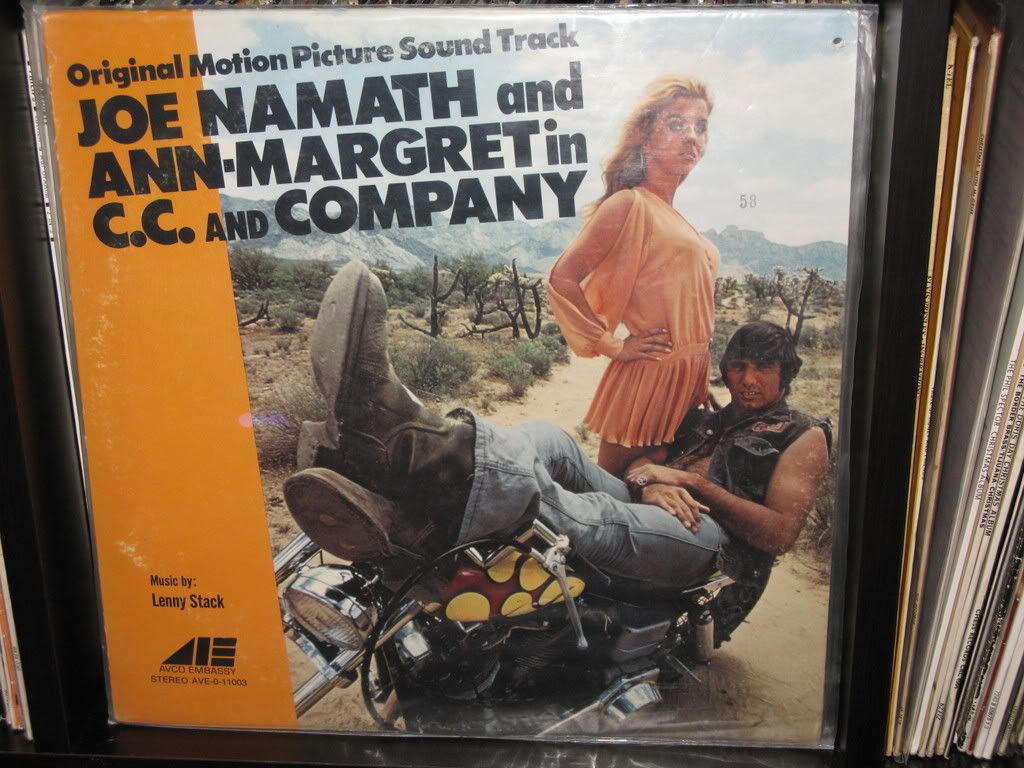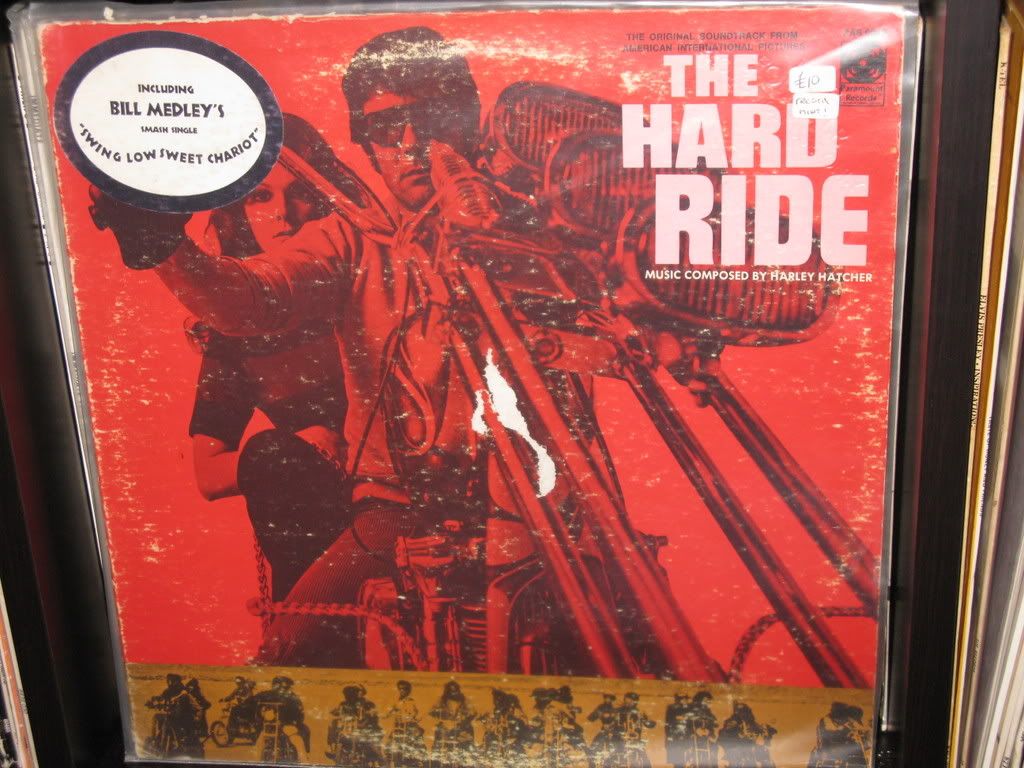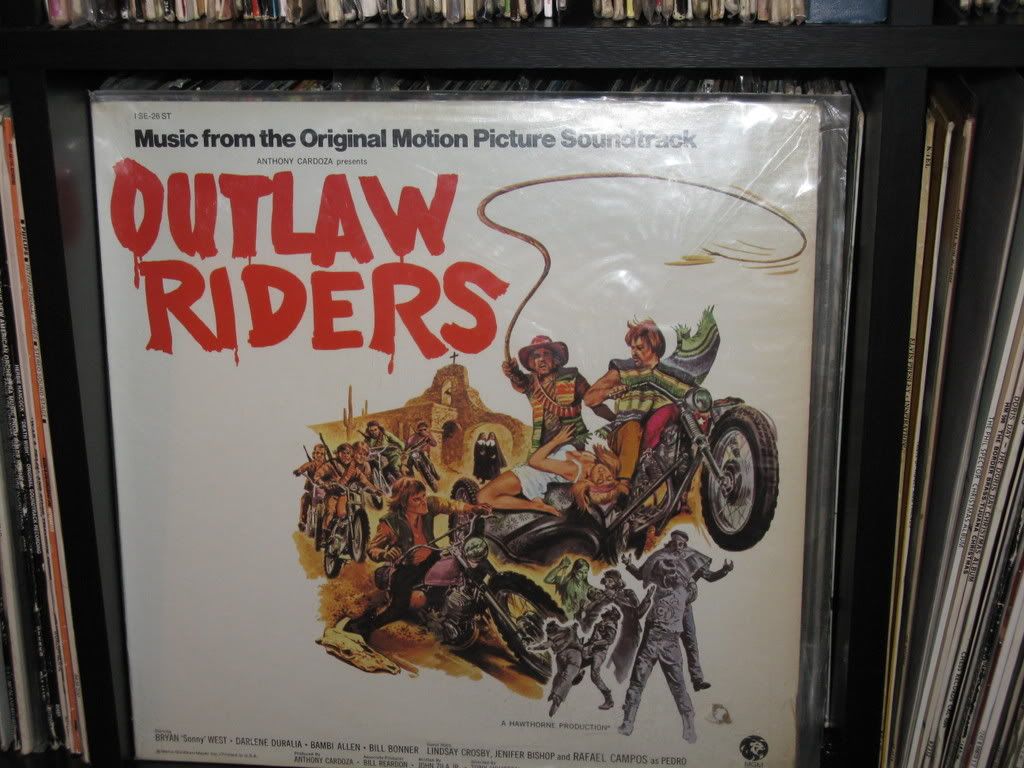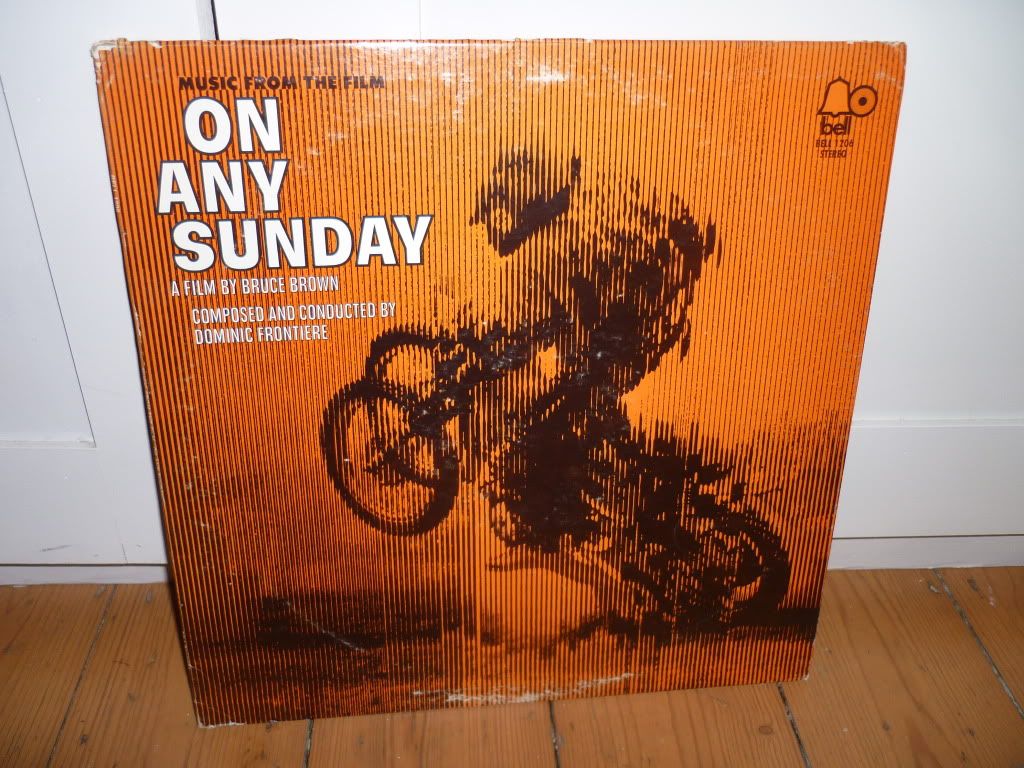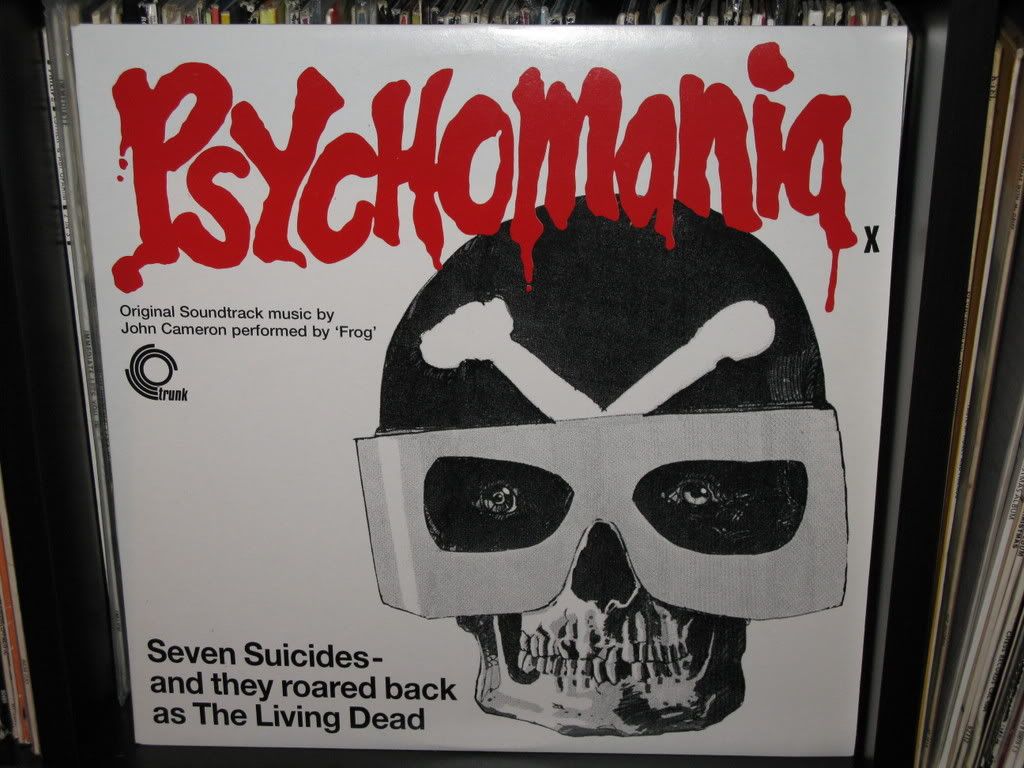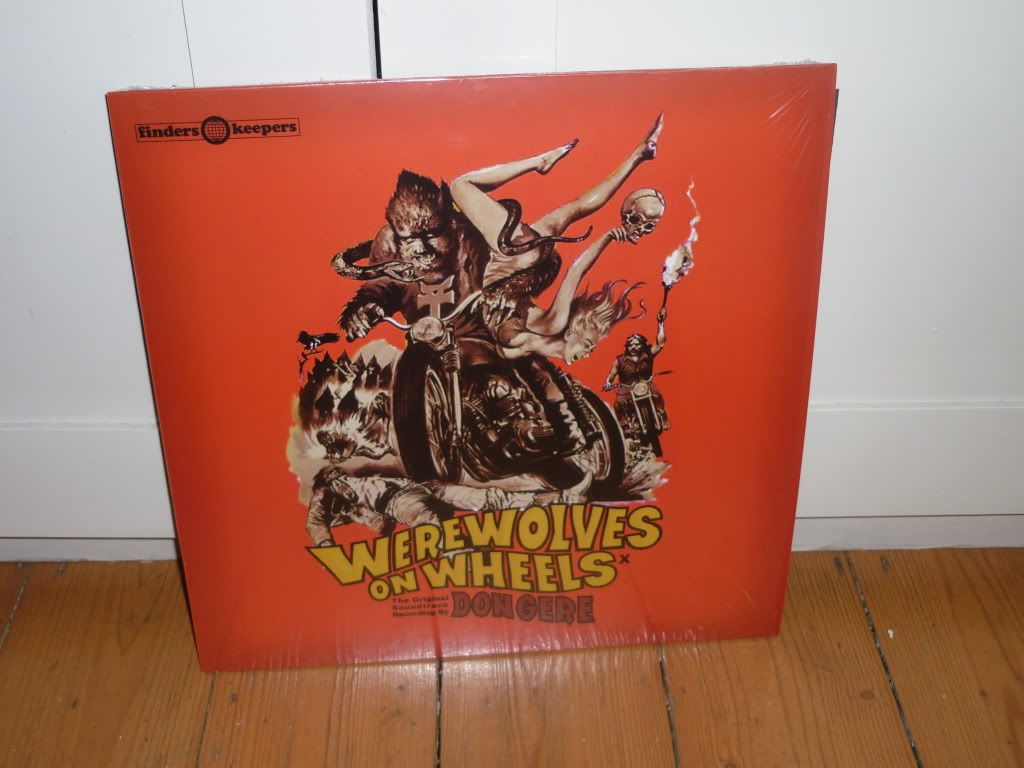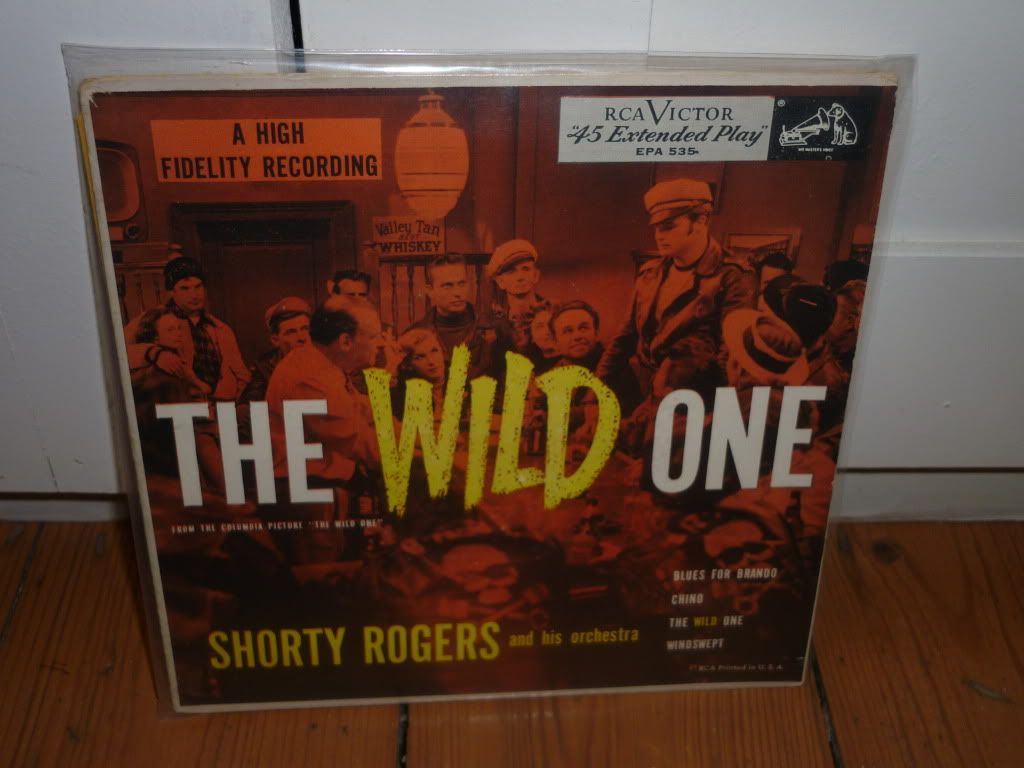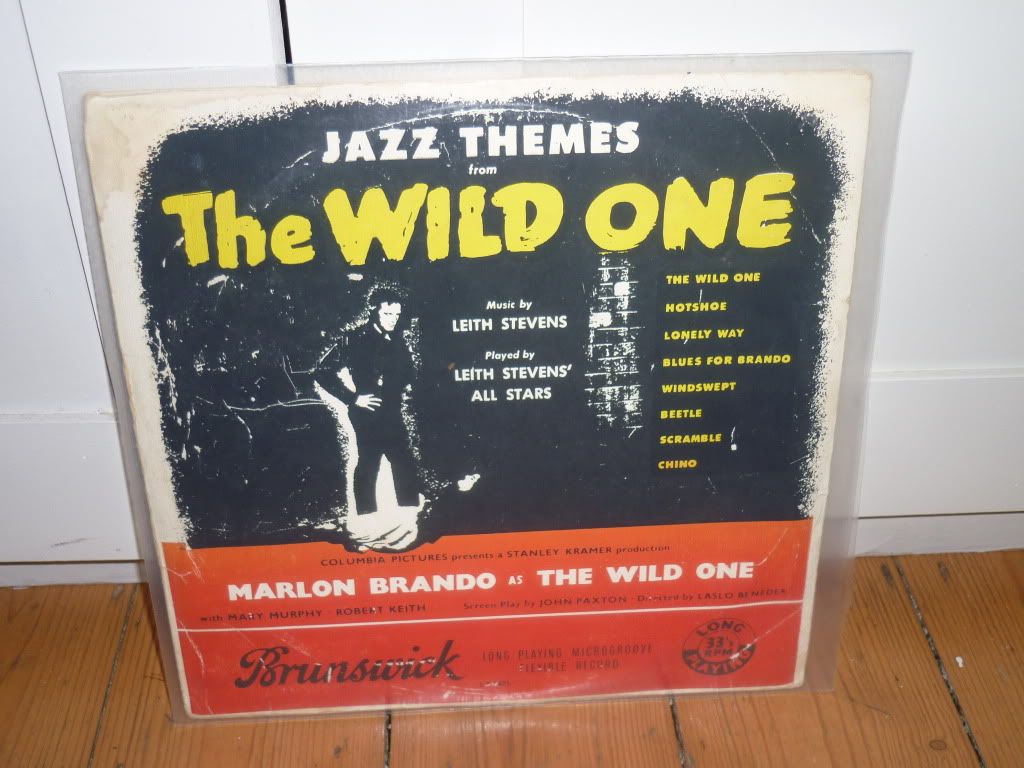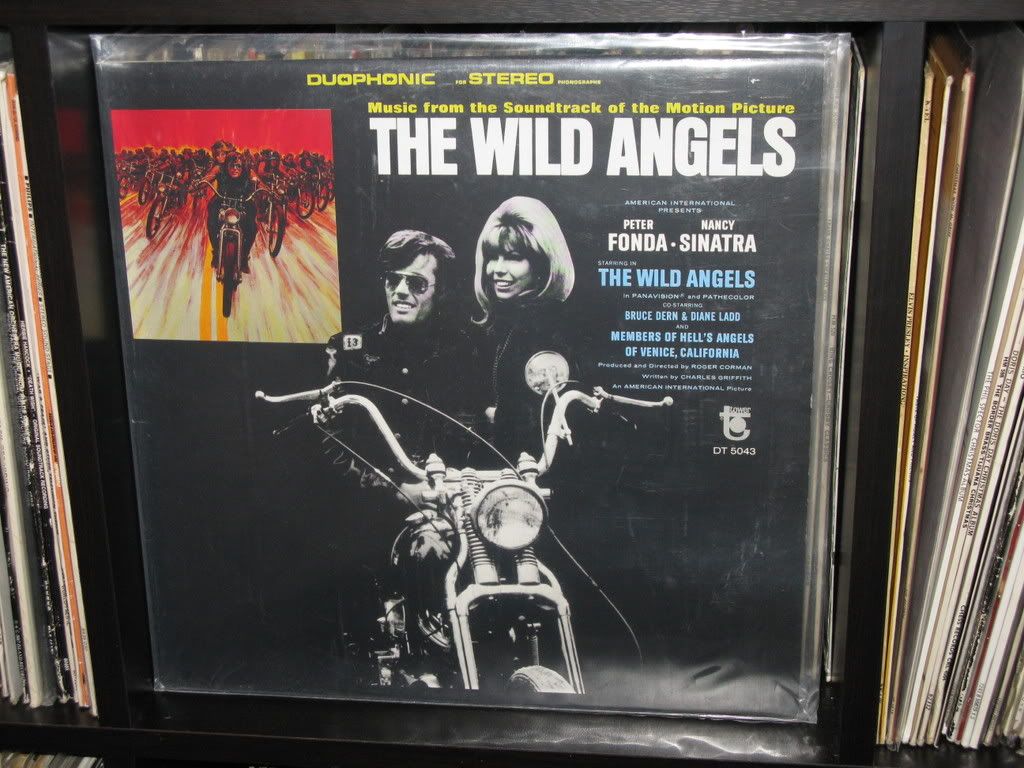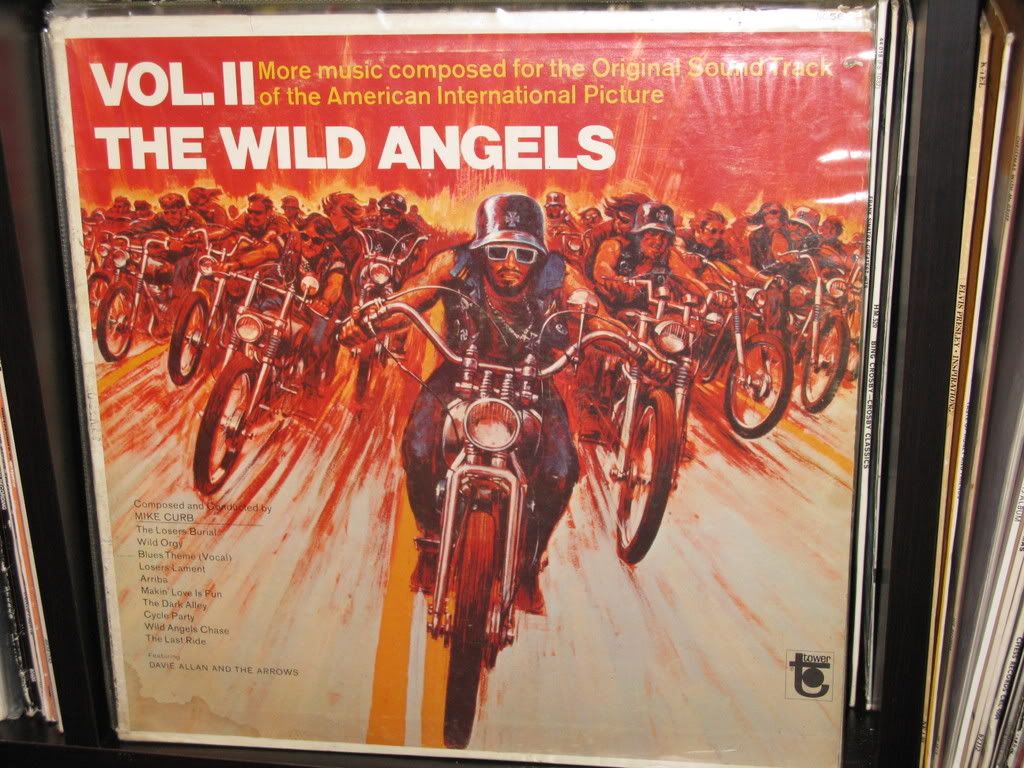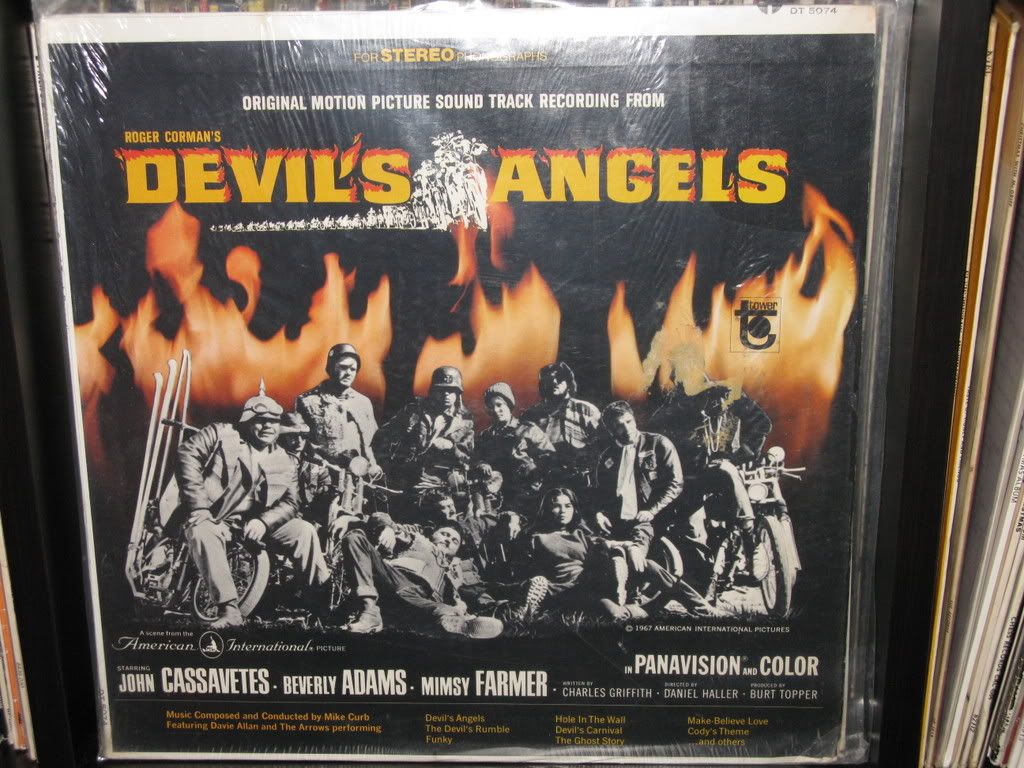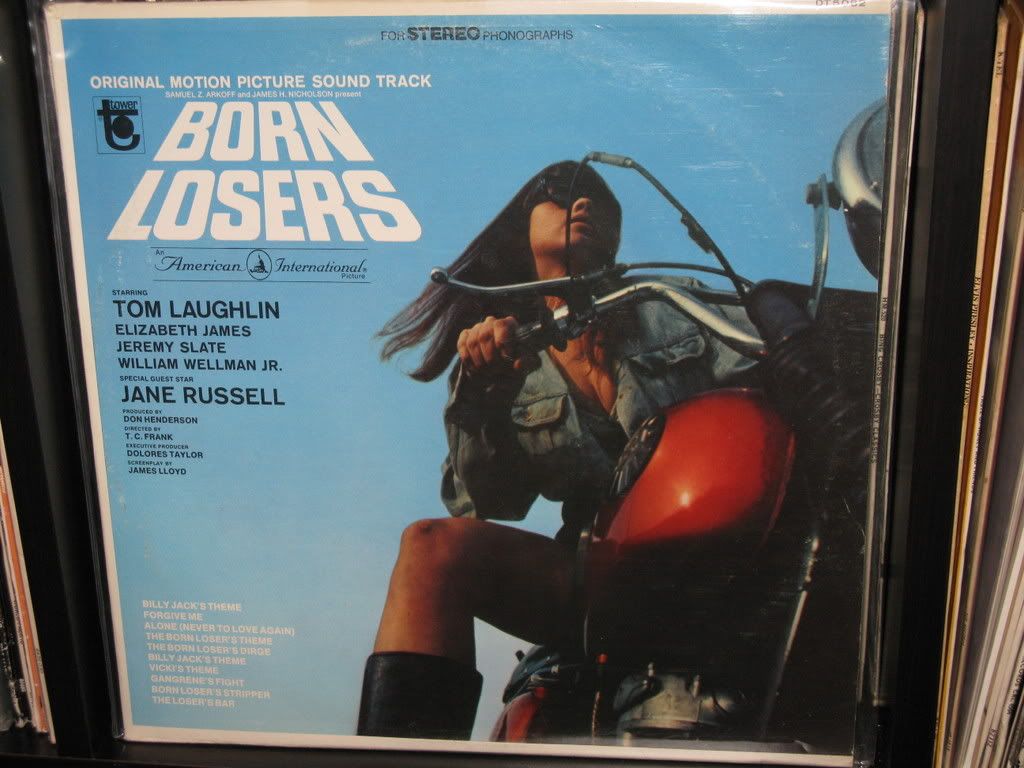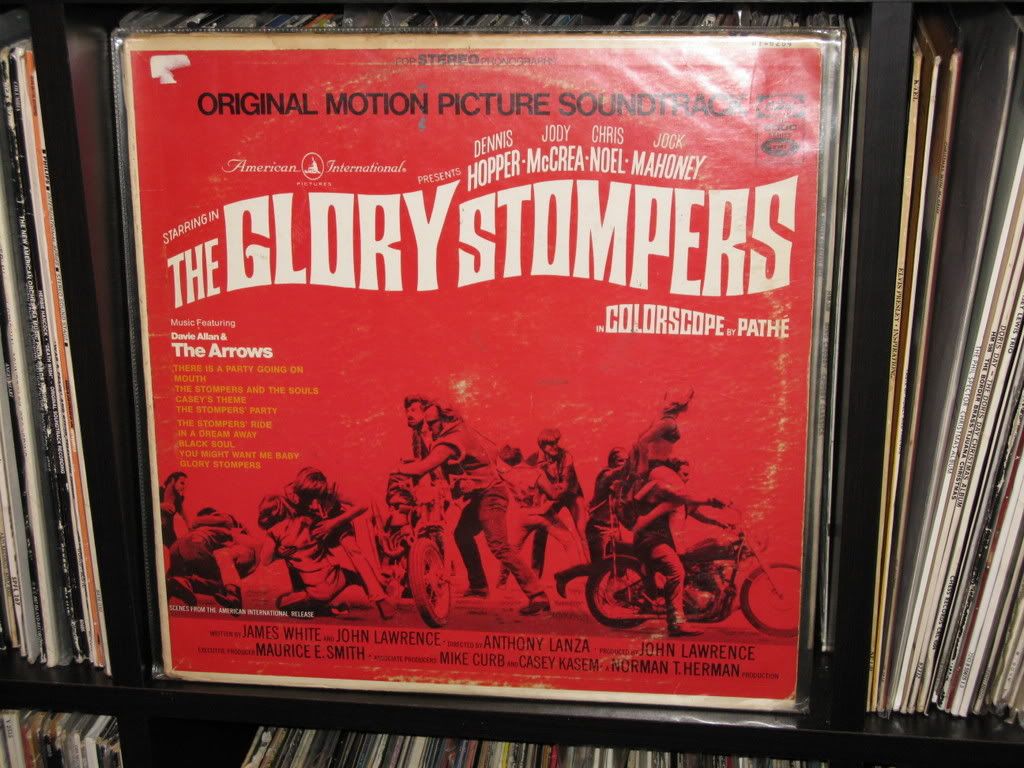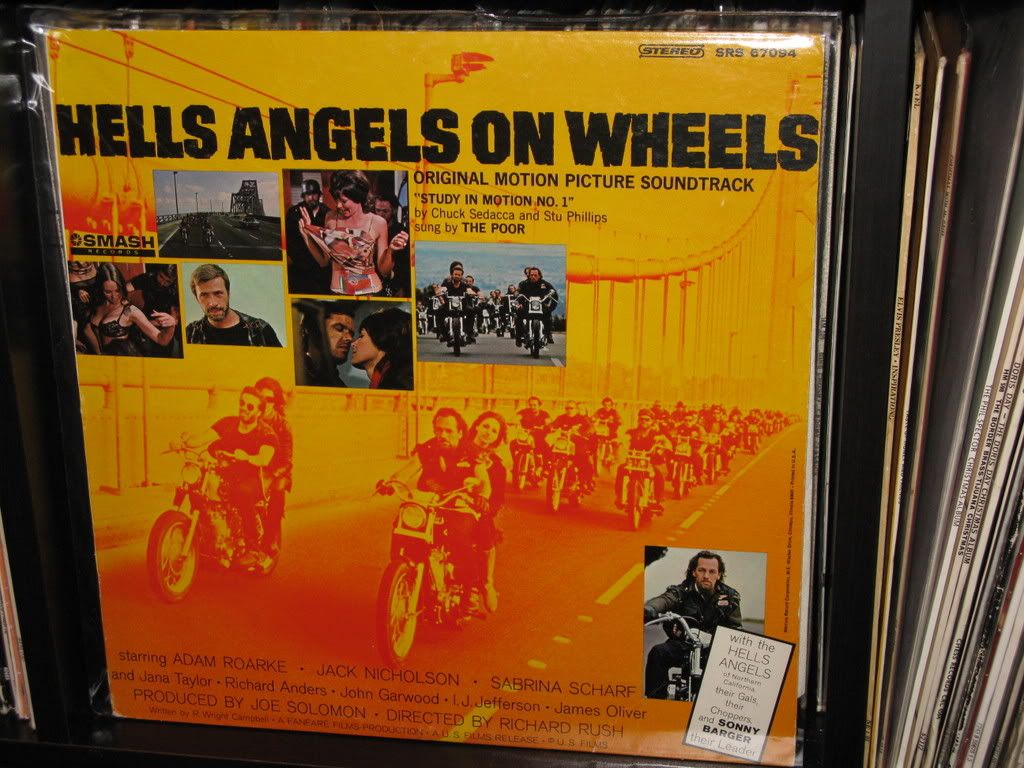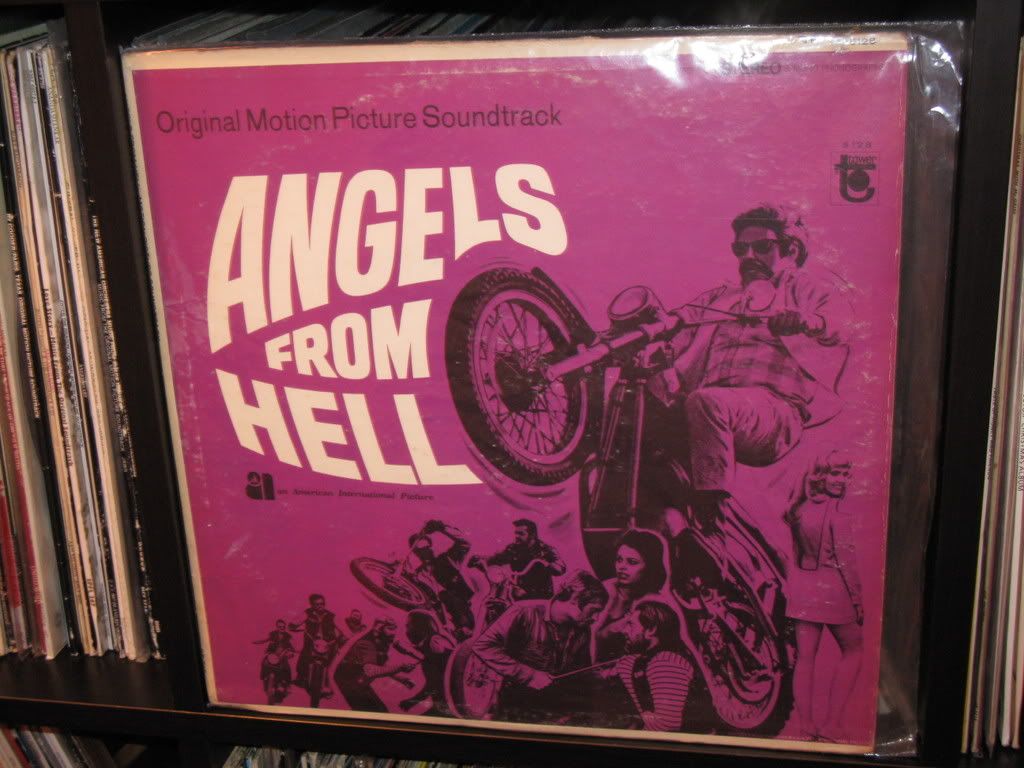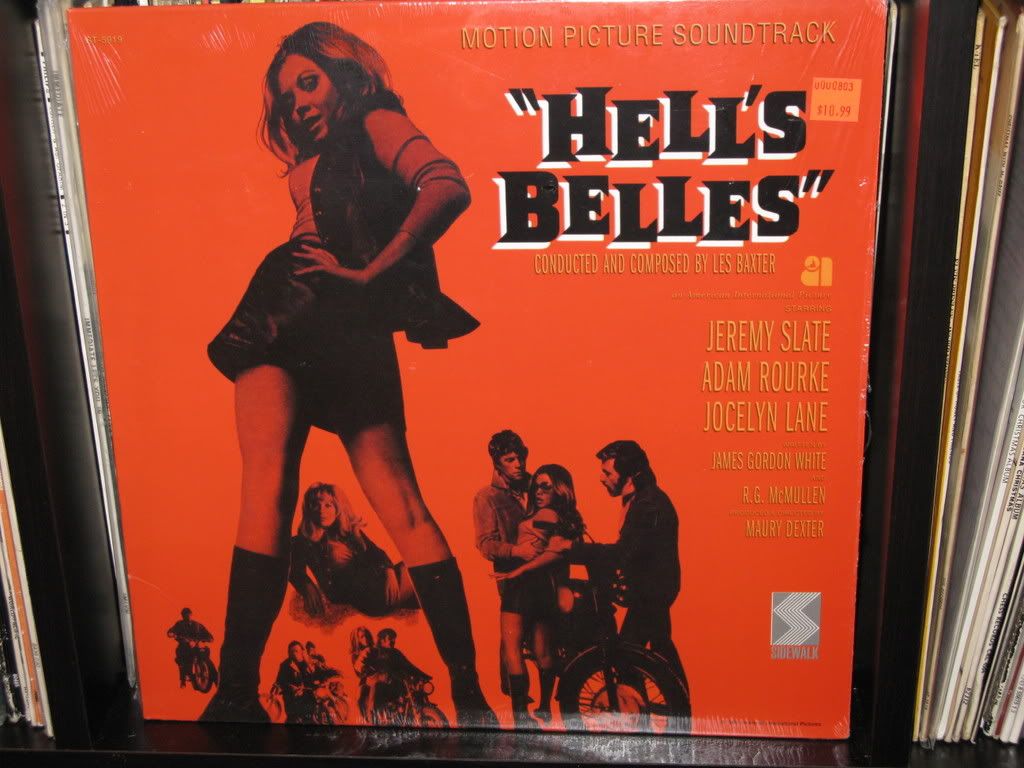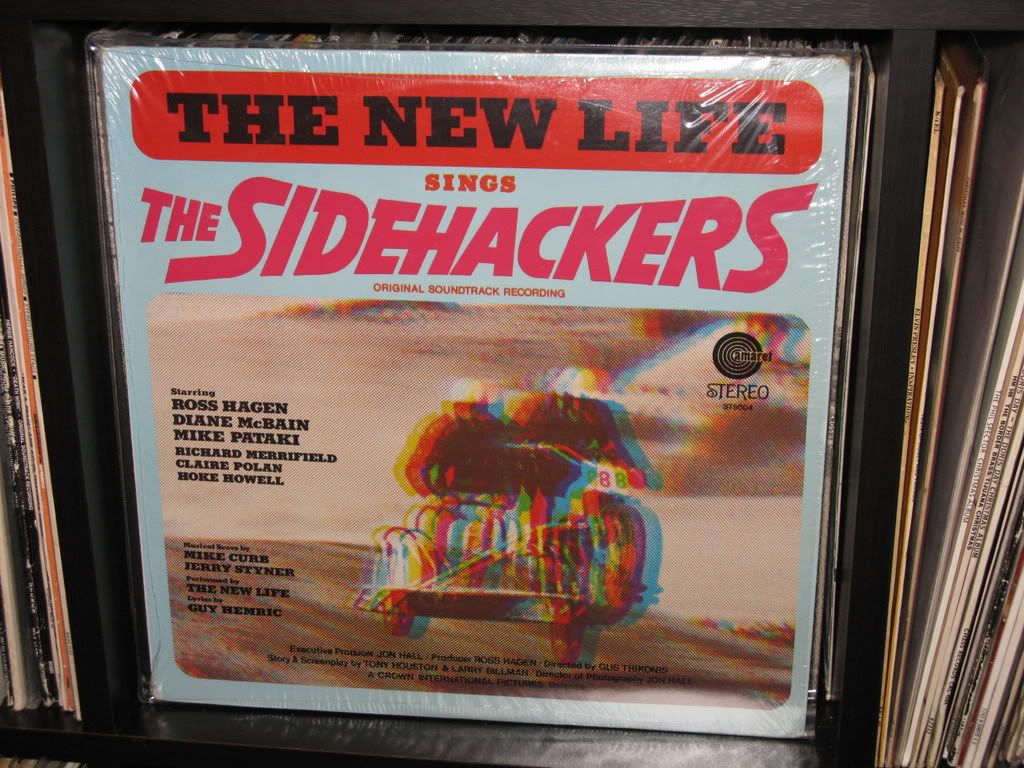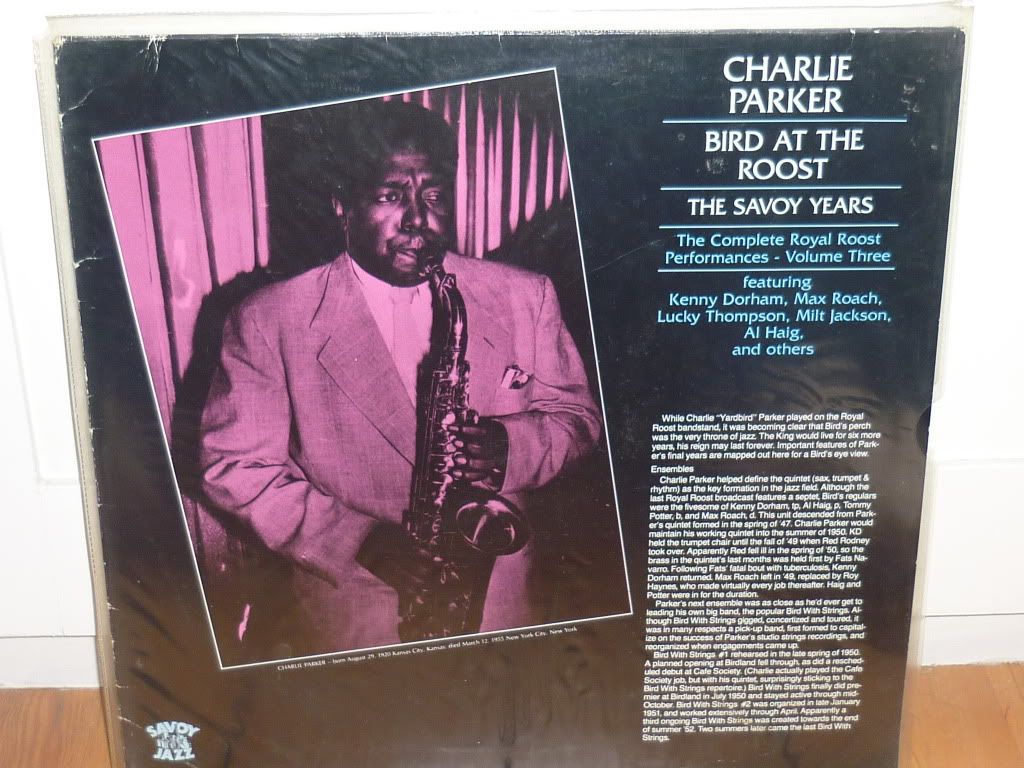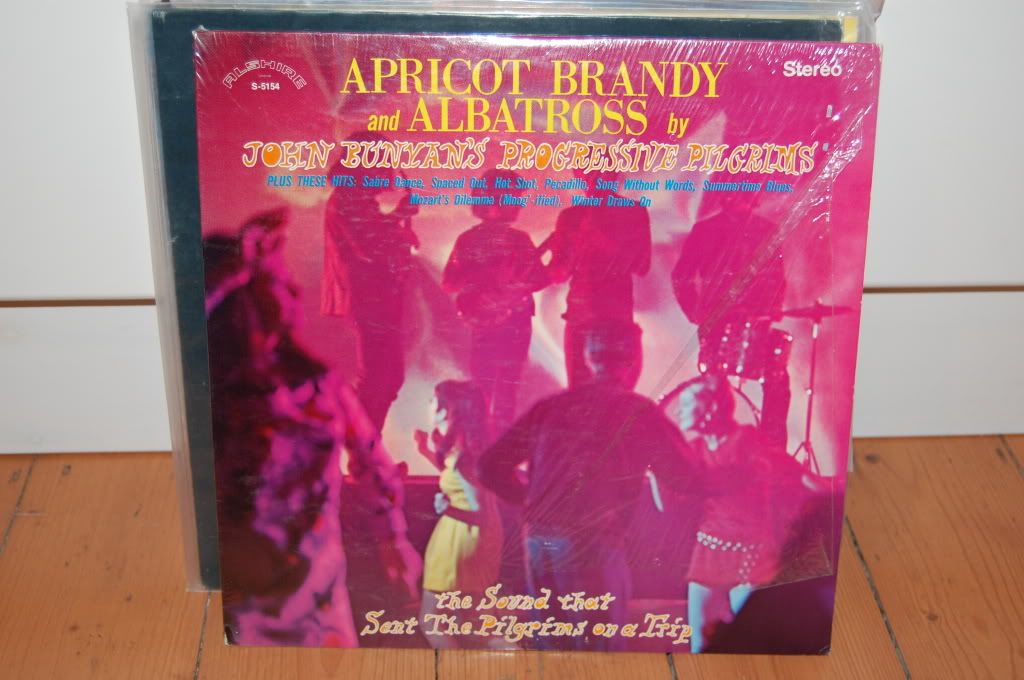Welcome back after our brief intermission.
Hope you've had a chance to grab a beer, smoke a reefer and have some wild sex with a stranger you've just met in a bar.
Now its time to get back on your hog and back into the desert that is Hollywood biker movies.
We're going to take you to some pretty far-out places so better drop that acid now - you're gonna need it!
We're into 1969 and the biker craze is still going strong. However, while keeping the drinking, dangerous driving and rampant sex, most bikers are now the bad guys. No longer misunderstood misfits, by the end of the sixties, as the hippie dream started to fade with Altamont (real bikers no less!) and Manson (real sex mad crazies no less!) bikers are now out and out villains.
And what could make the point more starkly than this film?
A really nasty film in which bikers do little else other than rape and kill innocents, while riding through the desert this is probably as close to real exploitation this side of a snuff movie.
Starring, somewhat incredibly Russ Tamblyn from West Side Story this nasty piece of work was allegedly filmed at the Spahn Ranch in Simi Valley at the same time that the Manson Family were living there.
Its another soundtrack with a Mike Curb connection. This time yet another of his cohorts, Harley Hatcher is given the reins and he produces some of the lamest, softest, most pathetic music for any film, much less such a vicious and amoral biker movie.
The Nightriders are credited with some tracks, and Mr Hatcher takes credit for a few as well.
But it is the mysterious Paul Wibier who is the diamond in the rough here. His title theme is so preposterous that it tips over from parody into something truly dark and disturbing.
1969 also saw the release of Hell's Angels 69.
Renowned for starring Angels from the famous Oakland Chapter this film shows us that Sonny Barger, Terry the Tramp, Magoo, Winston and Preacher were better at being bad to the bone than they were at acting. My God, they were probably better at almost anything than acting!
The movie is a surreal mix of the bright lights of Las Vegas circa Fat Elvis and mean long-haired drug-addled Angels - two things that just shouldn't be put together.
The soundtrack by Tony Bruno is quite good.
As usual, I struggle to see Sonny and his mates putting in on the record player but if you like your music funky then there are a couple of cool tracks here.
The best of the bunch are Goofin and Chase of Death.
Needless to say the vocal numbers are very weak - including a track by the wonderfully named Stream of Consciousness.
One to pick up if you see it for cheap.
Here is Chase of Death - a great clip for the bike action as well:
A rather sad coda to the Arrow's involvement in Biker Movie Soundtracks - although not quiet the last fling for Davie Allan.
Its a rather sad shadow of the former Davie Allan glories - just as the film is more like Herschel Gordon Lewis's She Devil's On Wheels than Wild Angels.
Davie produces an adequate title track and recycles an earlier tune as the Angry Mob.
After that its a very sedate affair.
It would be fun to imagine that Davy Jones and the Dolphins are somehow connected to the Monkees' Davy Jones. But alas no.
Somebody's Chyldren are best avoided.
The back of the sleeve advertises a novel based on the film. Would love to track down a copy!
Also released in 1969 was Run Angel Run.
My wife hates this cover!
The music is by the ever reliable Stu Philips so you can expect some goodies.
The Tammy Wynette title track,however, is confusing on so many levels that I can't really do it justice in words.
We have the usual made up band - this time the Windows
And as usual Phillips provides some slightly off-kilter interesting and funky tracks.
Its not quite what you would call THE funk but it makes for an interesting listen
The music for Wild Wheels is as confused as the movie itself. The film doesn't know if it wants to be a beach movie with dune buggies or a biker film.
The movie attempts an update of some of the beach movie cliches by adding some harder edged biker elements but never really gets away from those very cliches and, for me, remains too close to the beach side of things.
In some ways however, it does show the cross over from one form of exploitation movie to another and perhaps why surf type instrumental music was featured in so may biker films.
Harley Hatcher is again in charge and as usual turns in a very whitebread effort.
Terry Stafford also features and Carole Curb (a relation to Mike?) handles the linears.
There is a tune called Makin' Love which features an uncredited Davie Allan on guitar. It turns up on a number of earlier biker movies under other names but there's something about the innocence of the lyrics that tickles my fancy.
Back to some more hardcore biker fare with Naked Angels and one of the nastiest covers of any biker soundtrack - or possibly any soundtrack.
Jeff Simmons, who would later join the Mothers of Invention, together with Randy Sterling are responsible for this acid rock offering.
With loud drums over rock jams and dirty fuzzy guitars, this feels like the closest music to what bikers might actually listen to.
There's a loose feel to the music that epitomises the devil-may-care biker cliche.
And unlike many biker soundtracks its a pretty good listen all the way through
Angel Unchained was my first biker soundtrack which I picked up for cheap on the basis of the cover alone.
I should have read the linear notes first!
The music is by Randy Sparks (surely not his real name!) who according to the notes composed to The Littlest Hobo, toured with Bob Hope and wrote for Disney and the Singing Nun. He also likes to sing about conservation and ecology. Oh dear!
And sure enough the music is soft enough to drip through the cracks in the pavement.
Let's just say that this one doesn't get on to the turntable much.
The Angels Die Hard soundtrack features a track by Fever Tree which seems to be why most people are interested in it.
The rest is largely taken up by a band called East-West Pipeline. Although I can't find anything about them they do sound like a real band and not a fictional group.
Their sound is west coast rock with some nice vocal harmonies.
There is also quite a fun version of Sly Stone's I Want to Take You Higher which is so bad is good.
The highlight for me is this track by Rabbit MacKay - again about whom I can find nothing
CC & Company starred baseball player Joe Namath and Ann-Margret who is a long way from her Elvis days!
For reasons best known to himself, Lenny Stack (a name almost as good as Randy Sparks) chose to produce a big band funky soundtrack to a biker movie.
Sure he added some fuzzy guitar action but if you want some biker rock then look away now!
If however you have a fancy for orchestral funk then this is the record for you!
The wind was beginning to go out of the bike movie sales but the bandwagon had a little way to go before it completely ground to a halt.
Harley Hatcher is back for the Hard Ride and after his previous efforts you have to ask why.
The so-called smash single touted on the front is a sub-Tom Jones bash through the hymn that would embarrass a rural church choir.
As for the rest Harley turns in his usual soft and unremarkable work.
Davie Allan appears, again uncredited, on the Sounds of Harley track and this is the best of the bunch, again showing the links between surf exploitation and biker exploitation.
The Outlaw Riders came out in 1971 and features music by Simon Stokes and the Nighthawks, apparently taken from his first album, although I've never heard it.
Stokes was a psych blues rock bandleader from LA and his music was actually listened to by bikers.
Its not hard to see why from these tracks. Anguished vocals, driving rhythm and searing guitars, these tracks are dirty and hard and are just what you think should be in a biker film.
Even the tracks that are not by Stokes are pretty good in a hard rocking kinda way.
Judging from the film stills on the back cover the movie was pretty dire but the album has a roughneck charm that I can't quite put my finger on. Good stuff!
A bit like the Sidehackers, On Any Sunday isn't really a biker movie, rather its a movie about people who ride bikes.
Anyway here it is - so sue me!
Funky big band action from Dominic Frontiere that is really great.
The movie, including Steve McQueen showing his Great Escape skills is supposedly a documentary.
The band features some of the LA Wrecking Crew, Larry Bunker, Emil Richards, Tommy Tedecso and Carole Kaye. Needless to say the band is tighter than a pair of concrete underpants.
Highly recommended.
We finish off with two horror biker cross-overs that have been resurrected by two of the best reissue labels in the world - Trunk Records and Finders Keepers.
Both are deep, heavy, Krautrock-esque, bass heavy monsters.
The films are stupid as hell but the music is serious. Track them down if you can.
There you have it. There are some great tracks on these records. Just don't go expecting a great play from begining to end!
There are some biker soundtracks that I haven't yet been able to lay my hands on, notably Cycle Savages and Stone. If/when I pick them up I'll add them in.
There are also loads of biker films that don't seem to have released their soundtracks such as The Mini Skirt Mob, the Black Angels, Devil Rider, Hell's Chosen Few, The Peacekiller, etc. etc.
I have deliberately not included Easy Rider as it is not a film about bikers but rather a film about hippies on bikes.
Hope you've had a chance to grab a beer, smoke a reefer and have some wild sex with a stranger you've just met in a bar.
Now its time to get back on your hog and back into the desert that is Hollywood biker movies.
We're going to take you to some pretty far-out places so better drop that acid now - you're gonna need it!
We're into 1969 and the biker craze is still going strong. However, while keeping the drinking, dangerous driving and rampant sex, most bikers are now the bad guys. No longer misunderstood misfits, by the end of the sixties, as the hippie dream started to fade with Altamont (real bikers no less!) and Manson (real sex mad crazies no less!) bikers are now out and out villains.
And what could make the point more starkly than this film?
A really nasty film in which bikers do little else other than rape and kill innocents, while riding through the desert this is probably as close to real exploitation this side of a snuff movie.
Starring, somewhat incredibly Russ Tamblyn from West Side Story this nasty piece of work was allegedly filmed at the Spahn Ranch in Simi Valley at the same time that the Manson Family were living there.
Its another soundtrack with a Mike Curb connection. This time yet another of his cohorts, Harley Hatcher is given the reins and he produces some of the lamest, softest, most pathetic music for any film, much less such a vicious and amoral biker movie.
The Nightriders are credited with some tracks, and Mr Hatcher takes credit for a few as well.
But it is the mysterious Paul Wibier who is the diamond in the rough here. His title theme is so preposterous that it tips over from parody into something truly dark and disturbing.
1969 also saw the release of Hell's Angels 69.
Renowned for starring Angels from the famous Oakland Chapter this film shows us that Sonny Barger, Terry the Tramp, Magoo, Winston and Preacher were better at being bad to the bone than they were at acting. My God, they were probably better at almost anything than acting!
The movie is a surreal mix of the bright lights of Las Vegas circa Fat Elvis and mean long-haired drug-addled Angels - two things that just shouldn't be put together.
The soundtrack by Tony Bruno is quite good.
As usual, I struggle to see Sonny and his mates putting in on the record player but if you like your music funky then there are a couple of cool tracks here.
The best of the bunch are Goofin and Chase of Death.
Needless to say the vocal numbers are very weak - including a track by the wonderfully named Stream of Consciousness.
One to pick up if you see it for cheap.
Here is Chase of Death - a great clip for the bike action as well:
A rather sad coda to the Arrow's involvement in Biker Movie Soundtracks - although not quiet the last fling for Davie Allan.
Its a rather sad shadow of the former Davie Allan glories - just as the film is more like Herschel Gordon Lewis's She Devil's On Wheels than Wild Angels.
Davie produces an adequate title track and recycles an earlier tune as the Angry Mob.
After that its a very sedate affair.
It would be fun to imagine that Davy Jones and the Dolphins are somehow connected to the Monkees' Davy Jones. But alas no.
Somebody's Chyldren are best avoided.
The back of the sleeve advertises a novel based on the film. Would love to track down a copy!
Also released in 1969 was Run Angel Run.
My wife hates this cover!
The music is by the ever reliable Stu Philips so you can expect some goodies.
The Tammy Wynette title track,however, is confusing on so many levels that I can't really do it justice in words.
We have the usual made up band - this time the Windows
And as usual Phillips provides some slightly off-kilter interesting and funky tracks.
Its not quite what you would call THE funk but it makes for an interesting listen
The music for Wild Wheels is as confused as the movie itself. The film doesn't know if it wants to be a beach movie with dune buggies or a biker film.
The movie attempts an update of some of the beach movie cliches by adding some harder edged biker elements but never really gets away from those very cliches and, for me, remains too close to the beach side of things.
In some ways however, it does show the cross over from one form of exploitation movie to another and perhaps why surf type instrumental music was featured in so may biker films.
Harley Hatcher is again in charge and as usual turns in a very whitebread effort.
Terry Stafford also features and Carole Curb (a relation to Mike?) handles the linears.
There is a tune called Makin' Love which features an uncredited Davie Allan on guitar. It turns up on a number of earlier biker movies under other names but there's something about the innocence of the lyrics that tickles my fancy.
Back to some more hardcore biker fare with Naked Angels and one of the nastiest covers of any biker soundtrack - or possibly any soundtrack.
Jeff Simmons, who would later join the Mothers of Invention, together with Randy Sterling are responsible for this acid rock offering.
With loud drums over rock jams and dirty fuzzy guitars, this feels like the closest music to what bikers might actually listen to.
There's a loose feel to the music that epitomises the devil-may-care biker cliche.
And unlike many biker soundtracks its a pretty good listen all the way through
Angel Unchained was my first biker soundtrack which I picked up for cheap on the basis of the cover alone.
I should have read the linear notes first!
The music is by Randy Sparks (surely not his real name!) who according to the notes composed to The Littlest Hobo, toured with Bob Hope and wrote for Disney and the Singing Nun. He also likes to sing about conservation and ecology. Oh dear!
And sure enough the music is soft enough to drip through the cracks in the pavement.
Let's just say that this one doesn't get on to the turntable much.
The Angels Die Hard soundtrack features a track by Fever Tree which seems to be why most people are interested in it.
The rest is largely taken up by a band called East-West Pipeline. Although I can't find anything about them they do sound like a real band and not a fictional group.
Their sound is west coast rock with some nice vocal harmonies.
There is also quite a fun version of Sly Stone's I Want to Take You Higher which is so bad is good.
The highlight for me is this track by Rabbit MacKay - again about whom I can find nothing
CC & Company starred baseball player Joe Namath and Ann-Margret who is a long way from her Elvis days!
For reasons best known to himself, Lenny Stack (a name almost as good as Randy Sparks) chose to produce a big band funky soundtrack to a biker movie.
Sure he added some fuzzy guitar action but if you want some biker rock then look away now!
If however you have a fancy for orchestral funk then this is the record for you!
The wind was beginning to go out of the bike movie sales but the bandwagon had a little way to go before it completely ground to a halt.
Harley Hatcher is back for the Hard Ride and after his previous efforts you have to ask why.
The so-called smash single touted on the front is a sub-Tom Jones bash through the hymn that would embarrass a rural church choir.
As for the rest Harley turns in his usual soft and unremarkable work.
Davie Allan appears, again uncredited, on the Sounds of Harley track and this is the best of the bunch, again showing the links between surf exploitation and biker exploitation.
The Outlaw Riders came out in 1971 and features music by Simon Stokes and the Nighthawks, apparently taken from his first album, although I've never heard it.
Stokes was a psych blues rock bandleader from LA and his music was actually listened to by bikers.
Its not hard to see why from these tracks. Anguished vocals, driving rhythm and searing guitars, these tracks are dirty and hard and are just what you think should be in a biker film.
Even the tracks that are not by Stokes are pretty good in a hard rocking kinda way.
Judging from the film stills on the back cover the movie was pretty dire but the album has a roughneck charm that I can't quite put my finger on. Good stuff!
A bit like the Sidehackers, On Any Sunday isn't really a biker movie, rather its a movie about people who ride bikes.
Anyway here it is - so sue me!
Funky big band action from Dominic Frontiere that is really great.
The movie, including Steve McQueen showing his Great Escape skills is supposedly a documentary.
The band features some of the LA Wrecking Crew, Larry Bunker, Emil Richards, Tommy Tedecso and Carole Kaye. Needless to say the band is tighter than a pair of concrete underpants.
Highly recommended.
We finish off with two horror biker cross-overs that have been resurrected by two of the best reissue labels in the world - Trunk Records and Finders Keepers.
Both are deep, heavy, Krautrock-esque, bass heavy monsters.
The films are stupid as hell but the music is serious. Track them down if you can.
There you have it. There are some great tracks on these records. Just don't go expecting a great play from begining to end!
There are some biker soundtracks that I haven't yet been able to lay my hands on, notably Cycle Savages and Stone. If/when I pick them up I'll add them in.
There are also loads of biker films that don't seem to have released their soundtracks such as The Mini Skirt Mob, the Black Angels, Devil Rider, Hell's Chosen Few, The Peacekiller, etc. etc.
I have deliberately not included Easy Rider as it is not a film about bikers but rather a film about hippies on bikes.
